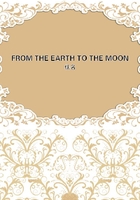
第115章
All the head lines of railroads in the States were joined by flying rails; and on all the platforms, lined with the same flags, and decorated with the same ornaments, were tables laid and all served alike. At certain hours, successively calculated, marked by electric clocks which beat the seconds at the same time, the population were invited to take their places at the banquet tables. For four days, from the 5th to the 9th of January, the trains were stopped as they are on Sundays on the railways of the United States, and every road was open.
One engine only at full speed, drawing a triumphal carriage, had the right of traveling for those four days on the railroads of the United States.
The engine was manned by a driver and a stoker, and bore, by special favor, the Hon. J. T. Maston, secretary of the Gun Club.
The carriage was reserved for President Barbicane, Colonel Nicholl, and Michel Ardan. At the whistle of the driver, amid the hurrahs, and all the admiring vociferations of the American language, the train left the platform of Baltimore. It traveled at a speed of one hundred and sixty miles in the hour. But what was this speed compared with that which had carried the three heroes from the mouth of the Columbiad?
Thus they sped from one town to the other, finding whole populations at table on their road, saluting them with the same acclamations, lavishing the same bravos! They traveled in this way through the east of the Union, Pennsylvania, Connecticut, Massachusetts, Vermont, Maine, and New Hampshire; the north and west by New York, Ohio, Michigan, and Wisconsin; returning to the south by Illinois, Missouri, Arkansas, Texas, and Louisiana;they went to the southeast by Alabama and Florida, going up by Georgia and the Carolinas, visiting the center by Tennessee, Kentucky, Virginia, and Indiana, and, after quitting the Washington station, re-entered Baltimore, where for four days one would have thought that the United States of America were seated at one immense banquet, saluting them simultaneously with the same hurrahs! The apotheosis was worthy of these three heroes whom fable would have placed in the rank of demigods.
And now will this attempt, unprecedented in the annals of travels, lead to any practical result? Will direct communication with the moon ever be established? Will they ever lay the foundation of a traveling service through the solar world? Will they go from one planet to another, from Jupiter to Mercury, and after awhile from one star to another, from the Polar to Sirius? Will this means of locomotion allow us to visit those suns which swarm in the firmament?
To such questions no answer can be given. But knowing the bold ingenuity of the Anglo-Saxon race, no one would be astonished if the Americans seek to make some use of President Barbicane's attempt.
Thus, some time after the return of the travelers, the public received with marked favor the announcement of a company, limited, with a capital of a hundred million of dollars, divided into a hundred thousand shares of a thousand dollars each, under the name of the "National Company of Interstellary Communication."President, Barbicane; vice-president, Captain Nicholl; secretary, J. T. Maston; director of movements, Michel Ardan.
And as it is part of the American temperament to foresee everything in business, even failure, the Honorable Harry Trolloppe, judge commissioner, and Francis Drayton, magistrate, were nominated beforehand!